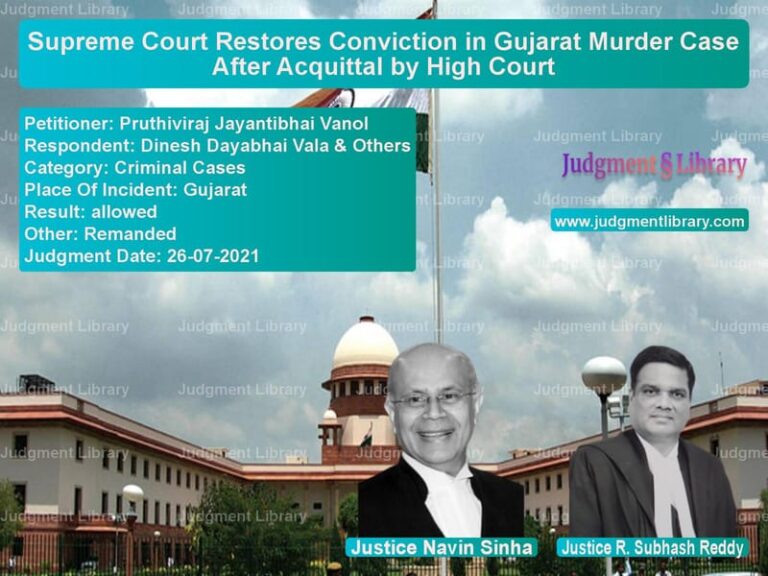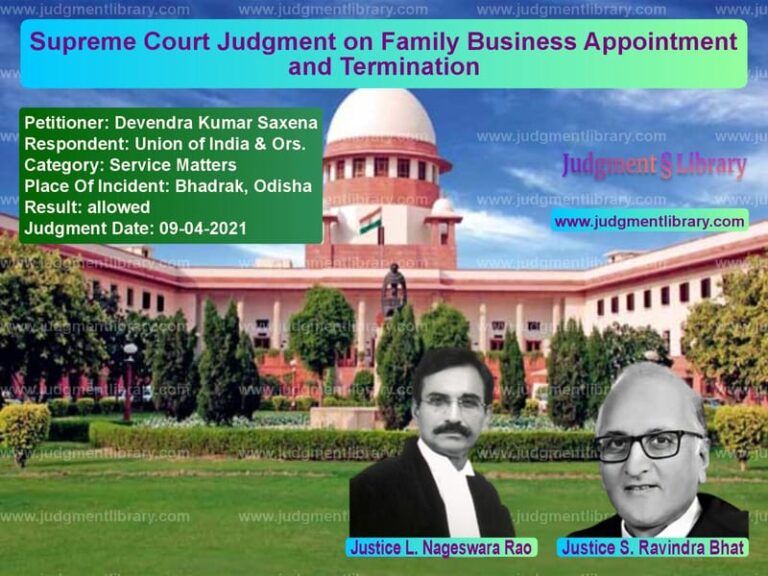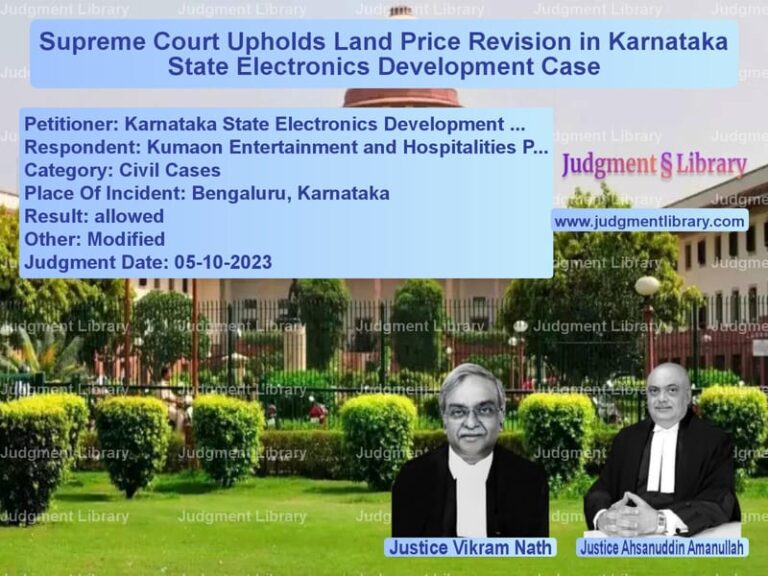Supreme Court Upholds Winding Up of Franklin Templeton Mutual Fund Schemes
The Supreme Court of India recently upheld the decision to wind up six mutual fund schemes managed by Franklin Templeton Trustee Services Private Limited. The case, Franklin Templeton Trustee Services Pvt. Ltd. & Anr. vs. Amruta Garg & Ors., revolved around the legality of the fund house’s decision to close the schemes due to liquidity concerns and whether unit holders’ consent was required.
The judgment, delivered on February 12, 2021, clarifies key regulatory provisions under the Securities and Exchange Board of India (Mutual Funds) Regulations, 1996 (Mutual Fund Regulations) and highlights the responsibilities of mutual fund trustees and asset management companies in protecting investors’ interests.
Background of the Case
Franklin Templeton’s Decision to Wind Up Mutual Fund Schemes
On April 23, 2020, Franklin Templeton Mutual Fund announced the winding up of six debt mutual fund schemes:
- Franklin India Low Duration Fund
- Franklin India Ultra Short Bond Fund
- Franklin India Short Term Income Plan
- Franklin India Credit Risk Fund
- Franklin India Dynamic Accrual Fund
- Franklin India Income Opportunities Fund
The fund house cited severe illiquidity in the bond market following the COVID-19 pandemic as the reason for winding up. It claimed that selling bonds in an illiquid market would cause steep losses, and winding up was the best option to protect investors’ value.
Investors Challenge the Winding-Up Decision
Several investors, led by Amruta Garg and others, challenged Franklin Templeton’s decision, alleging that:
- The fund house mismanaged investors’ money by investing in risky bonds.
- The decision to wind up the schemes was taken without obtaining unit holders’ consent.
- Over ₹15,000 crores had been withdrawn by institutional investors just before the winding-up announcement, raising suspicion of unfair practices.
The Karnataka High Court ruled in favor of the investors, holding that Franklin Templeton must obtain the consent of unit holders before winding up the schemes.
Supreme Court’s Observations and Ruling
Requirement of Unit Holders’ Consent
The key legal issue before the Supreme Court was whether the Mutual Fund Regulations required Franklin Templeton to obtain unit holders’ consent before winding up the schemes.
The Court analyzed Regulation 18(15)(c) and Regulation 39(2) of the Mutual Fund Regulations:
- Regulation 18(15)(c): Requires the consent of unit holders when trustees decide to wind up a scheme.
- Regulation 39(2): Allows winding up if an event occurs that, in the trustees’ opinion, requires winding up.
The Supreme Court upheld the Karnataka High Court’s ruling that unit holders’ consent is mandatory under Regulation 18(15)(c). However, it clarified that consent means approval by the majority of unit holders who vote, not all unit holders.
Validity of E-Voting Process
To comply with the High Court’s ruling, Franklin Templeton conducted an e-voting process from December 26-29, 2020. The results showed overwhelming support for the winding-up decision:
- Over 95% of voting unit holders approved the winding-up.
- Votes in favor accounted for 54% of total unit value.
The Supreme Court found that the voting process was fair and dismissed investors’ objections regarding procedural lapses.
Impact on Investors
The Court acknowledged that investors had suffered due to the suspension of redemptions for over ten months. It directed that funds worth ₹9,122 crores already available should be distributed immediately to unit holders.
Role of SEBI and Future Regulation
The Court noted that the Securities and Exchange Board of India (SEBI) had initiated an investigation into Franklin Templeton’s practices. It directed SEBI to:
- Ensure transparency in mutual fund operations.
- Enforce stricter compliance with investment norms.
- Finalize regulations for winding up mutual fund schemes to prevent future disputes.
Key Takeaways from the Judgment
- Mutual funds must obtain unit holders’ consent before winding up schemes.
- E-voting is a valid method for obtaining investor consent.
- Trustees cannot unilaterally decide to wind up a scheme without approval.
- Regulatory oversight is necessary to prevent mismanagement of investors’ funds.
- Liquidation must be conducted carefully to ensure fair value for investors.
Impact of the Judgment
The ruling strengthens investor protection in the mutual fund industry by ensuring that fund houses cannot arbitrarily close schemes. It also sets a precedent for greater transparency in mutual fund governance. SEBI is expected to implement stricter regulations based on this ruling.
Conclusion
The Supreme Court’s judgment in Franklin Templeton Trustee Services Pvt. Ltd. vs. Amruta Garg is a landmark ruling for investor rights in India. By enforcing the requirement of unit holders’ consent, the Court has upheld the principle of investor democracy in mutual funds.
The decision ensures that mutual fund investors have a say in crucial decisions affecting their investments, reinforcing transparency and accountability in the industry.
Petitioner Name: Franklin Templeton Trustee Services Private Limited and Another.Respondent Name: Amruta Garg and Others.Judgment By: Justice Sanjiv Khanna.Place Of Incident: India.Judgment Date: 12-02-2021.
Don’t miss out on the full details! Download the complete judgment in PDF format below and gain valuable insights instantly!
Download Judgment: franklin-templeton-t-vs-amruta-garg-and-othe-supreme-court-of-india-judgment-dated-12-02-2021.pdf
Directly Download Judgment: Directly download this Judgment
See all petitions in Corporate Compliance
See all petitions in Bankruptcy and Insolvency
See all petitions in unfair trade practices
See all petitions in Judgment by Sanjiv Khanna
See all petitions in partially allowed
See all petitions in Modified
See all petitions in supreme court of India judgments February 2021
See all petitions in 2021 judgments
See all posts in Corporate and Commercial Cases Category
See all allowed petitions in Corporate and Commercial Cases Category
See all Dismissed petitions in Corporate and Commercial Cases Category
See all partially allowed petitions in Corporate and Commercial Cases Category







